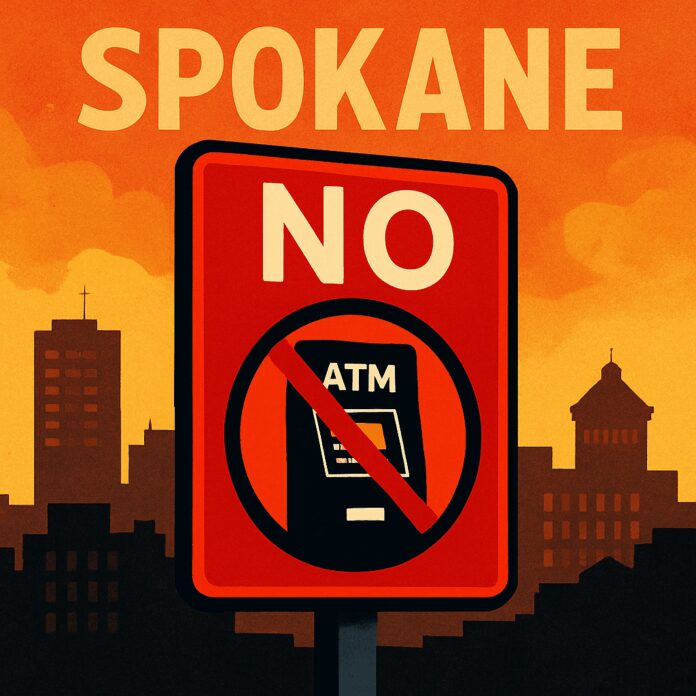In a landmark decision, Spokane — Washington State’s second-largest city — has officially banned crypto ATMs. The move comes after a unanimous City Council vote and is being framed as a direct response to escalating fraud targeting vulnerable populations.
This isn’t just a local regulation. It’s a warning to the entire crypto industry.
1. Why Spokane Pulled the Plug
The ban was triggered by a disturbing rise in scam activity tied to crypto ATMs:
- Scammers impersonating law enforcement or government agents told victims they owed money or were under investigation.
- The victims were instructed to use crypto ATMs to transfer funds urgently, often with no way to recover their money.
- Victims were frequently elderly or low-income individuals — the very groups least equipped to verify or reverse such actions.
Law enforcement data showed a 31% rise in such scams in 2024, with thousands of reported cases and hundreds of millions in losses.
2. Who’s Affected?
- Consumers: Residents will lose access to easy, local crypto purchases — but gain protection from predatory activity.
- Operators: Businesses have just 60 days to shut down or remove their machines.
- Crypto Users: The ATM exit cuts off one of the few in-person, fiat-to-crypto on-ramps for the unbanked or digitally inexperienced.
3. The Bigger Picture: Crypto Needs Better On-Ramps
Crypto ATMs were meant to provide access. But poor oversight, high fees, and vulnerability to abuse have turned them into a liability.
| Problem | Consequence |
|---|---|
| High, hidden fees (up to 20%) | Public mistrust and regulatory pushback |
| Weak KYC/AML enforcement | Exploitable by scammers |
| Poor consumer education | Easy prey for social engineering |
The result: Crypto ATMs are now seen as risk vectors, not access points.
4. What’s Next?
- Other Cities Could Follow: Spokane’s action sets a clear precedent. If similar fraud reports rise elsewhere, copycat bans are likely.
- ATM Providers Must Evolve: Higher compliance standards, fee transparency, and user protections are essential to survive.
- The Industry Must Self-Regulate — or Be Regulated: On-ramping has to be safe, or regulators will take the lead.
5. What This Means for RateEx42 Users
- Review Listings with ATM Exposure: If a token, wallet, or on-ramp relies on kiosks, assess the compliance and fraud prevention.
- Flag High-Risk Access Models: Include user interface and delivery risk in project evaluations.
- Support Safer Solutions: Favor integrations with regulated exchanges, compliant fintechs, and verifiable custodians.
Final Thought
Crypto access must be fast, fair, and secure — but most of all, it must be trustworthy.
Spokane’s ban reminds us that access without protection is not access at all — it’s a trap.
The industry can either build better rails — or watch cities shut them down, one by one.




